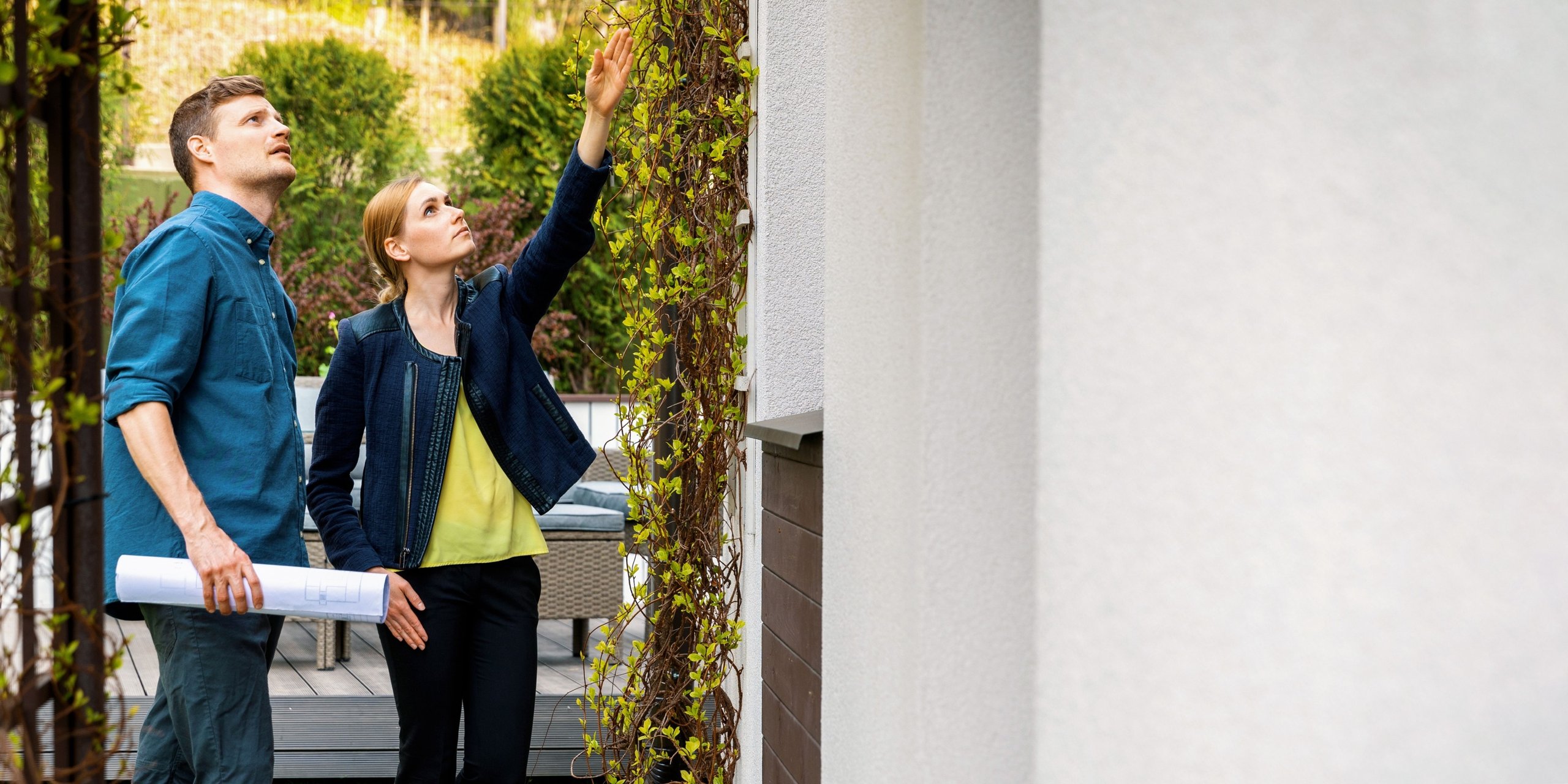Buying a home in Italy is a dream many people work toward for years. Rolling countryside, rustic villas and cities steeped in history make it easy to fall in love with a property almost instantly.
But before you commit to buying, it’s vital to look beneath the surface – quite literally. Property checks might not be legally required, but skipping them is a risk that could cost you dearly later on.
In Italy, local property experts like geometri (technical surveyors), engineers and architects can shine a light on hidden issues, from structural faults to legal irregularities. With their support, you can confidently move forward with your purchase, knowing exactly what you’re buying.
Contents
- The role of the geometra in Italian property surveys
- Why surveys matter even if they’re not required
- Building surveys and what to expect
- Additional inspections by other professionals
- Get your inspection results in writing
- Types of surveys in Italy explained
The role of the geometra in Italian property surveys
In Italy, one of your first points of contact for technical advice will likely be a geometra. This job title doesn’t have a direct translation in English, as the role blends the responsibilities of a land surveyor and a junior architect. A qualified geometra typically deals with everything from land measurements and property boundary checks to internal layout plans and permit verification.
Ready to buy? Get your free viewing trip guide
When buying a home, the geometra can perform a technical assessment of the building’s condition. This includes the structure, utilities, plans filed with the land registry and building permits. They check for irregularities between the physical property and what’s officially registered – something that’s more common than you might expect, especially in older houses or rural areas.
Importantly, a geometra can identify unauthorised extensions or renovations that were never officially registered, an issue that could complicate your purchase or lead to legal trouble down the line. For buyers planning to renovate, they can also offer estimates for planning permission and the likely cost of works.
Why surveys matter even if they’re not required
Italy does not require a formal building survey as part of the property transaction process. That being said, choosing to skip one may not be wise. A building survey in Italy serves as an important safety net for international buyers, particularly if you aren’t familiar with Italy’s building standards or regional risks.

Mortgage lenders increasingly require technical assessments to confirm the market value and structural integrity of a property. This is especially true in 2025, where post-pandemic purchasing trends have seen a rise in rural and older properties, which may come with hidden issues.
Buyers seeking renovation bargains or investing in heritage properties must exercise extra caution. Structural cracks, outdated wiring, unregistered constructions or plumbing failures may not be visible at first glance but can lead to huge repair bills. A survey helps steer you away from disappointment – or provides leverage when negotiating the price. Either way, it’s invaluable.
Building surveys and what to expect
A complete building survey, commonly called a perizia tecnica, provides an independent evaluation of the structure and essential systems like electrics, plumbing and the roof. It might be carried out by a geometra, engineer or architect, depending on the scope of the inspection and the age of the property.
If you’re buying an older or rural home, the survey should include checks for earthquake-proofing.
Some areas of Italy, like parts of Abruzzo, Umbria or Sicily, have strict anti-seismic building regulations due to their vulnerability to earthquakes. Knowing whether a house meets these standards before you buy might not only save you thousands. It could also save lives.

Expect your property expert to inspect walls, floors, drainage, heating, and ventilation. You’ll receive a detailed report on condition, compliance with local regulations and renovations that may be needed.
Get their full service fees and scope of work in writing before agreeing to anything.
Some geometri offer an initial free site visit to win further work, but get their full service fees and scope of work in writing before agreeing to anything.
Additional inspections by other professionals
Depending on the type of property and its location, you may choose to involve other technical professionals. These specialists can help shed light on issues that a general structural survey may not cover in depth:
Engineer (Ingegnere): If you’re buying in an area prone to earthquakes or landslides, it’s wise to engage a structural engineer. They will assess things like soil stability, foundation strength and overall seismic resistance. This is particularly important in properties that have been abandoned or altered over time without adequate engineering input.
Architect (Architetto): For modern buildings or if you’re planning major extensions, an architect may be your best ally. Architects can confirm if a property complies with local zoning and construction codes, and help you prepare design plans for any future work. Their experience is invaluable when trying to understand the potential — and limits — of a property.
These experts typically charge more than geometri, but they offer a level of advice that can be worth every euro — especially if you’re investing large sums or planning to restore a property for resale or rental.
Get your inspection results in writing
Verbal assurances are, unfortunately, not enough when it comes to making a high-value decision like buying a home abroad. Once your survey and legal checks are done, insist that your geometra or chosen expert provides a written report. This document should include clear details of the findings, photos where relevant and itemised cost estimates for any remedial work.
Understanding what’s cosmetic and what’s structural before you sign is crucial
Many older homes will have some level of wear and tear; that’s normal. But understanding what’s cosmetic and what’s structural before you sign is crucial. Use the survey results to negotiate the price or build room into your renovation budget. Surprises become much less painful when they’re expected.
Also, be precise in your purchase offer. Include a condition that your commitment to buy depends on a satisfactory technical survey. This clause gives you legal room to back out if major faults are discovered — without losing your deposit.
Types of surveys in Italy explained
There are three main types of surveys in Italy, each offering a different level of legal weight. Which one you choose may depend on the property type and whether you’re applying for a mortgage.
- Perizia tecnica: A general technical report on the structure and systems of the home. Typically supplied by a geometra, engineer or architect. It includes valuations and assessments on compliance with building regulations.
- Perizia asseverata (sworn statement survey): A more formal version of the above, where the expert takes professional responsibility for the contents of the survey. It’s a declaration made under personal accountability and often required by lenders.
- Perizia giurata (notarised sworn survey): The highest level of assurance, backed by an oath sworn in front of a public official (like a notary). It’s legally recognised and hard to contest, offering robust protection for the buyer.
Your estate agent or lawyer can help advise on which document you need for your situation. The more detailed and formal the survey, the more secure your investment.
Ready to start your property journey in Italy?
At Your Overseas Home, we believe that buying abroad should be exciting and secure. Our local experts and property consultants are on hand to guide you through the buying process in Italy. From technical surveys to trusted geometri and legal professionals, we connect you with the right people — saving you time, stress and money.
Start planning your move with us today by booking your free consultation.








